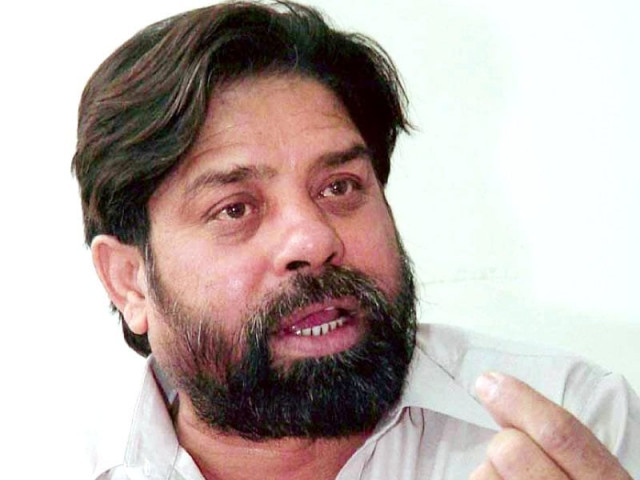Assembly slots: Selection on reserved seats challenged in SC
Ex-minister Julius Salik wants secret ballot for election of minorities, women candidates.

Ex-minister Julius Salik wants secret ballot for election of
minorities, women candidates. PHOTO: FILE
Former federal minister for minorities Julius Salik has moved the Supreme Court (SC) against the filling of reserved seats for women and minorities in the assemblies through selection.
Salik, along with Advocate Nadir Ali Siddiqui and Raja Shujaat Ali Abbasi, filed a petition before the court on Friday, asking for the use of secret balloting, as prescribed under Article 226 of the Constitution, to elect members to the reserved seats.
The petition invokes Article 184(3) of the Constitution and cites the secretary and chairman of the Election Commission of Pakistan (ECP), ministry of law and Justice secretary, the Senate chairman and National Assembly speaker as respondents. Under the aforementioned article, the SC has the power to make an order if it feels any of the fundamental rights guaranteed by the Constitution are being infringed upon.
Salik, in his petition, argued that since members were selected for the reserved seats without any constituency, the seats were functioning contrary to the essence of democracy and a burden on the national exchequer.
“If they do not represent any constituency, the selection of these members is useless,” he asserted.
The petitioners opined that leaders from different parties appointed their female workers to the reserved seats and in the process exploited women as a whole. They maintained it violated Article 25 of the Constitution which states all citizens are entitled to equal protection under the law and guarantees there would be no discrimination on the basis of sex.

Similarly, they said non-Muslim members who were selected for the reserved seats could not represent their actual communities and added that this procedure contradicted the preamble of the Constitution which guarantees provisions to safeguard the legitimate interests of minorities.
The petitioners argued that the respondents had been violating Article 4 of the Constitution, as non-Muslims and women were prevented from contesting elections for the reserved seats as independent candidates. They urged the court to direct ECP to fill the reserved seats through secret balloting in the upcoming elections.
There are 60 reserved seats for women and 10 for minorities in the National Assembly, while in provincial assemblies the number is 128 and 23 for women and minorities, respectively.
According to articles 51(e) and 106(3)(c) of the Constitution, members for the reserved seats are elected through a proportional representation system of the political parties’ list of candidates based on the total number of seats won by each party represented in the assemblies.
Published in The Express Tribune, March 2nd, 2013.



















COMMENTS
Comments are moderated and generally will be posted if they are on-topic and not abusive.
For more information, please see our Comments FAQ